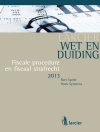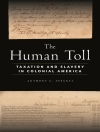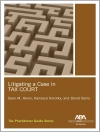This book focuses on corporate sector development in the context of transition economies, such as China. In doing so, the book uses quantitative methods to test several hypotheses that are salient to the Chinese economic situation.
Topics covered in the book include the relationship between tax management and firm performance, the extent to which a short-term focus on tax management can lead to long-term vulnerabilities, the impact of government ownership on tax management impact, and the link between the co-evolution of marketization and corruption, and institutional change and tax management.
With that the book offers rich empirical evidence to examine tax management, firm performance and corruption in a broad context, while permitting comparison between the Chinese experience and the market economies.
Tabla de materias
1.Introduction.- 2. Corporate Tax Management and Chinese Enterprises.- 3. Corporate governance and Firm Performance.- 4. Economic Reforms and Market Outcomes over Time.- 5. Corruption, Institutions and markets.- 6.Conclusions.
Sobre el autor
Chen
Zhang obtained her doctorate from the Institute of Graduate Studies, University of Malaya in 2017. She is currently Assistant Professor at Qingdao University, China.
Rajah Rasiah obtained his doctorate in Economics from Cambridge University in 1992. He is the 2014 recipient of the Celso Furtado Prize from the World Academy of Sciences for advancing the frontiers of Social Science (Economics). He is currently Distinguished Professor of Economics at University of Malaya, Malaysia.
Kee Cheok
Cheong obtained his doctorate in Economics from the London School of Economics in 1972. He is currently Senior Research Fellow at the Institute of China Studies, and Senior Advisor, Asia Europe Institute, University of Malaya, Malaysia.












